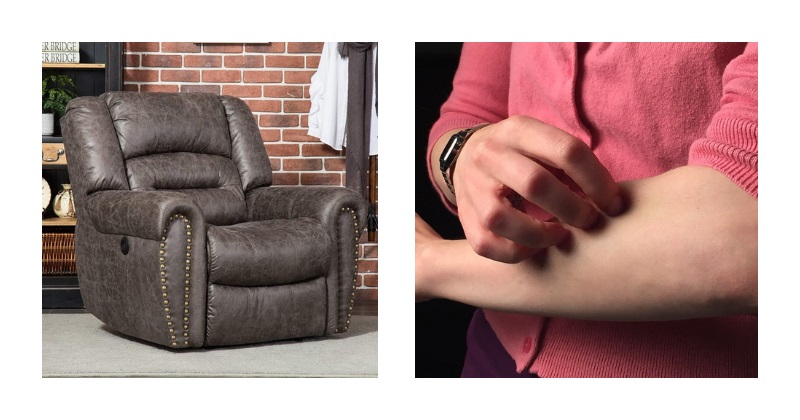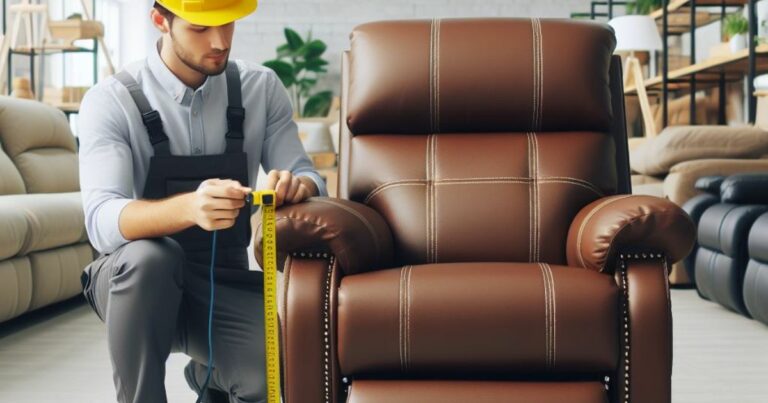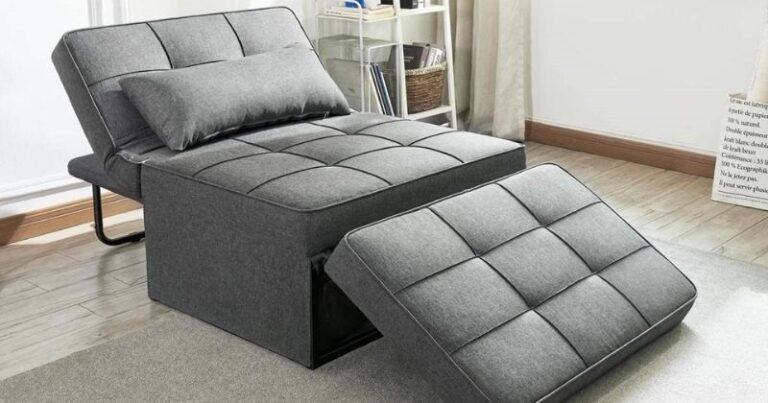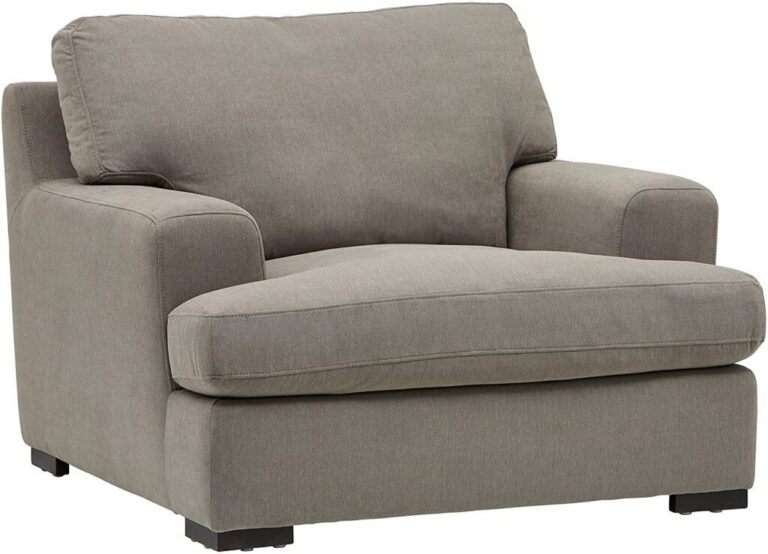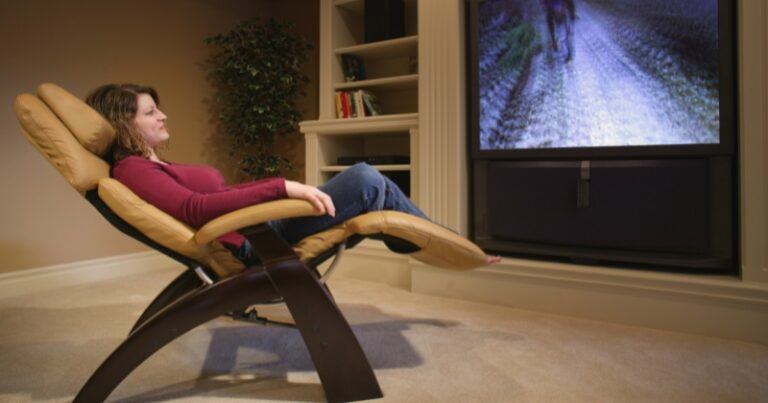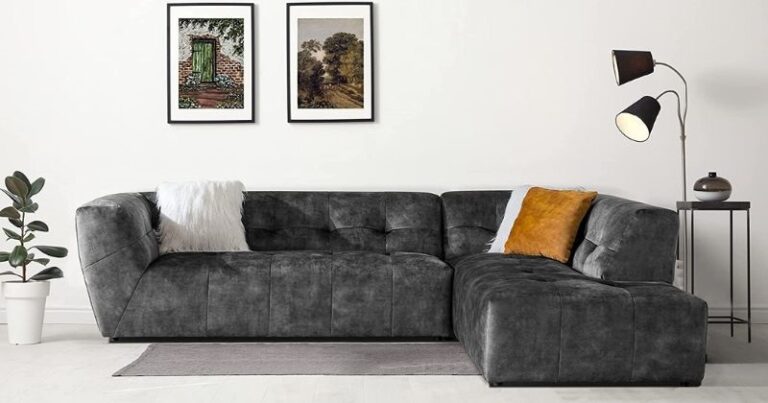Why is my recliner making me itch? There are many reasons that furniture can cause itchy skin. If you have eczema, for example, your skin may be more sensitive to the materials used in furniture.
It’s that time of year again when the recliners start making us itch. Why does this happen and what can we do about it? Furniture manufacturers use all sorts of materials to make their products, and some of them can cause skin irritation. In this blog post, I’ll take a look at the science behind recliner material and why it makes us itch. I’ll also discuss other reasons that furniture can cause skin problems, and offer some solutions so you can enjoy your recliner without any unwanted side effects!
Recliner Material and Itchy Skin
As we mentioned, furniture manufacturers use a variety of materials to make their products. Some of these materials can cause skin irritation, especially if you are sensitive to them. The most common culprits are synthetic fabrics, such as polyester and nylon. These fabrics are made from petroleum-based materials, which can release chemicals that irritate the skin.
Other materials that can cause problems include leather and metal, which can also contain chemicals that can irritate the skin. If you are allergic to dust mites, they may also be lurking in your recliner, causing itchiness and irritation.
Here’s a leather recliner that won’t make you itch
What Exactly is Sofa Dermatitis?
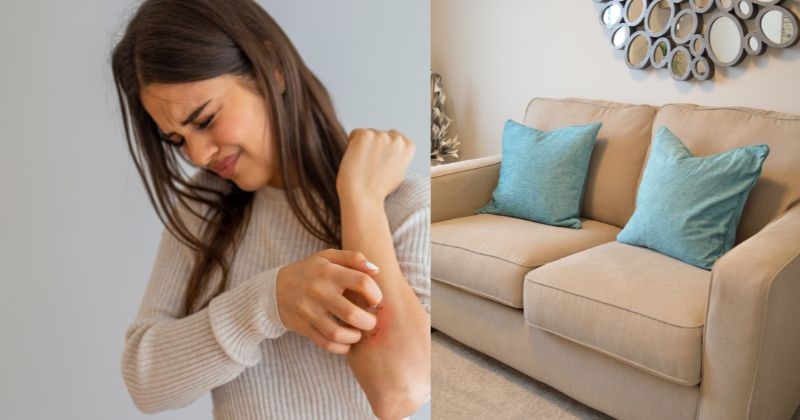
The medical term for recliner-related skin irritation is “sofa dermatitis.” This condition is caused by contact with materials that irritate the skin, such as synthetic fabrics, leather, or metal. The symptoms of sofa dermatitis include itchiness, redness, and scaling of the skin.
In severe cases, blisters may form. Sofa dermatitis is usually a chronic condition, which means it can last for months or even years. However, the good news is that it is not contagious and does not cause any long-term damage to the skin.
If you think you may have sofa dermatitis, the first step is to see a doctor or dermatologist. They will be able to diagnose the condition and recommend treatment. The most important thing you can do is to identify the irritant and avoid contact with it.
This may mean getting rid of your recliner or other furniture that is causing the problem. If this is not possible, you can try covering the furniture with a hypoallergenic fabric such as cotton. You can also take antihistamines to relieve the itchiness and use moisturizers to soothe the skin.
Other Reasons Furniture Can Cause Itchy Skin
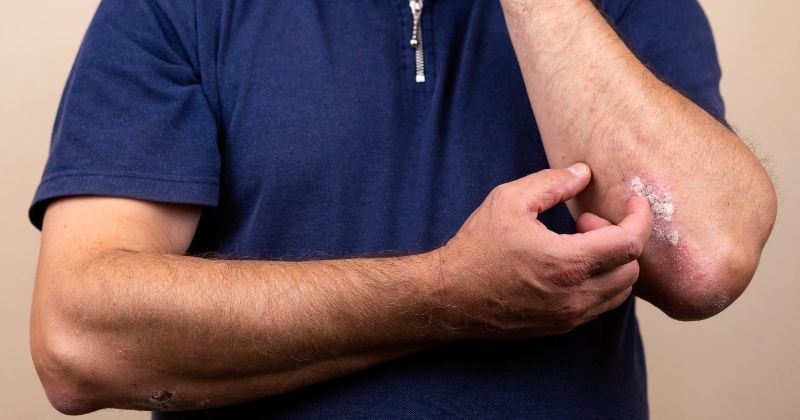
There are many reasons that furniture can cause itchy skin. If you have eczema, for example, your skin may be more sensitive to the materials used in furniture. Dust mites are also a common trigger for eczema flare-ups, so if you are allergic to them, they may be causing your itchiness. If you have psoriasis, your skin may be more likely to react to the chemicals in furniture, causing a flare-up.
Itching can often be a sign of a skin irritation or allergic reaction, and your recliner may be to blame. Here are seven other possible reasons why:
1) Fabric
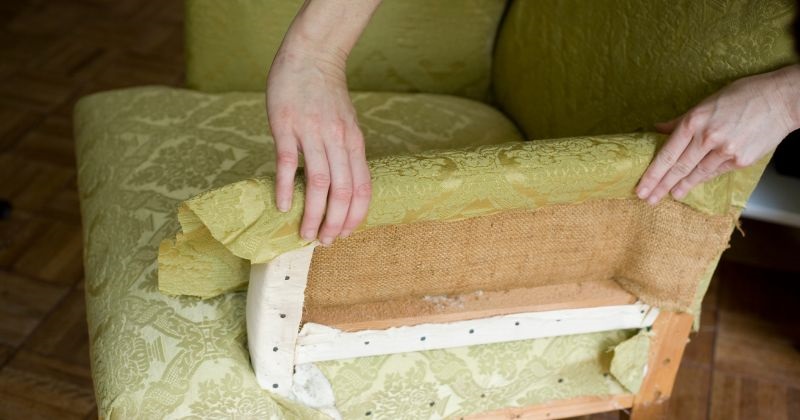
The fabric on your recliner contains chemicals or dyes that your skin is sensitive to.
2) Dust
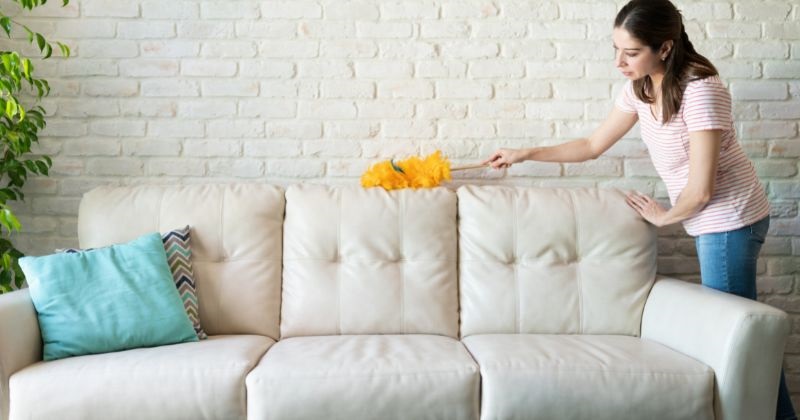
Dust or pet hair trapped in the fabric can cause itching, especially for those with allergies.
3) Sweating

Bathing or sweating while sitting in the recliner can contribute to itchiness by making your skin more sensitive and prone to irritation.
4) Material
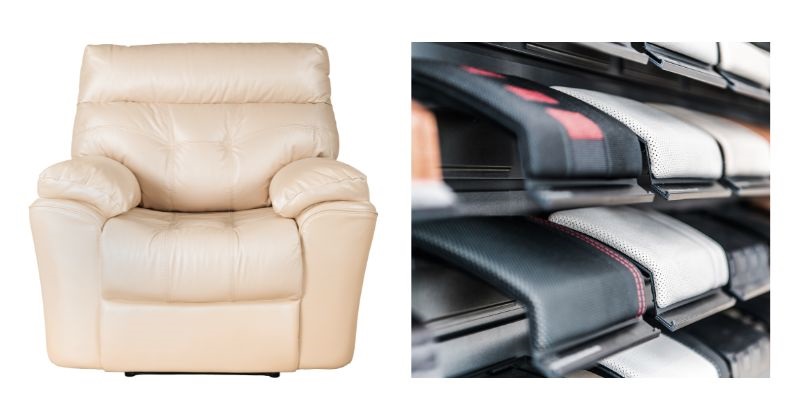
The material of the recliner may not be breathable, leading to overheating and discomfort.
5) Rough Patches
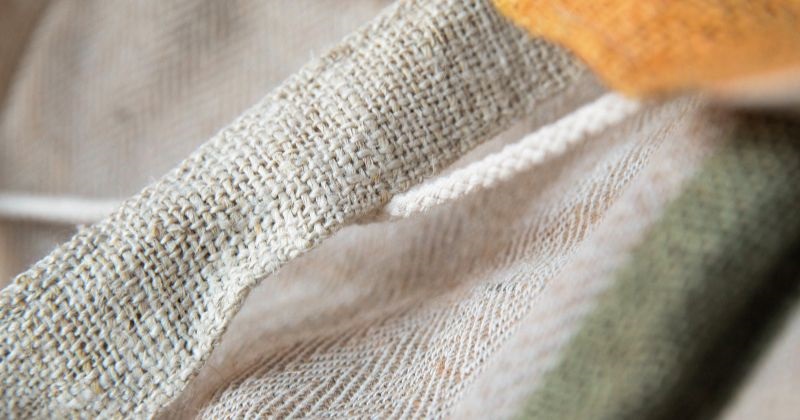
Pilling or rough patches on the fabric may irritate the skin as you move around in the chair.
6) Metal Components
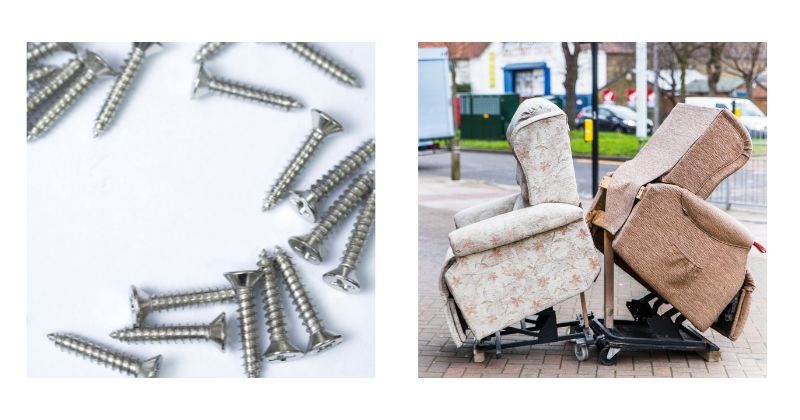
Metal components in the recliner, such as screws or nails, might poke against your skin causing discomfort.
7) Bacteria and Fungus
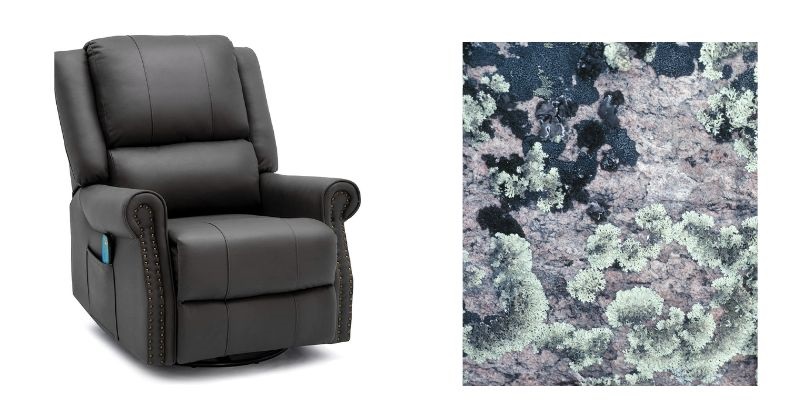
If the recliner has been heavily used, it may have accumulated a buildup of bacteria and fungus that can irritate the skin.
If your recliner is causing you to itch, consider switching to an alternative chair with hypoallergenic materials or inspecting and cleaning any potential sources of irritation. Of course, if itching persists it’s always best to consult a medical professional for advice.
Why Is My Couch Itchy?
If you’ve been experiencing discomfort and itching while using your couch, you’re not alone. An itchy couch can be an annoyance and may leave you wondering what’s causing the issue. In this section, I’ll explore again with more detail some common reasons why your couch might be making you itch and what you can do to address the problem.
- Fabric Allergies
One of the most common reasons for couch-related itching is fabric allergies. Some upholstery materials, such as certain synthetic fabrics or wool, can trigger allergic reactions in sensitive individuals. If you find yourself itching after sitting on your couch, it’s possible that you’re allergic to the fabric or the chemicals used in its production.
Solution: Consider using allergen-resistant couch covers or throws made from hypoallergenic materials. Regularly cleaning your couch with a fabric-specific cleaner can also help reduce allergen buildup.
- Dust Mites and Allergens
Dust mites, pet dander, and other allergens can accumulate in the fabric and cushions of your couch over time. These microscopic organisms can trigger allergic reactions, including itching and skin irritation, when they come into contact with your skin.
Solution: Vacuum your couch regularly using an upholstery attachment to remove dust, pet hair, and allergens. Consider using allergen-proof covers on your couch cushions to prevent dust mites from settling in.
- Fabric Irritation
Some couch fabrics may be rough or abrasive, causing friction against your skin and leading to itching or discomfort. Low-quality upholstery materials or fabrics that have worn down over time can be particularly prone to causing irritation.
Solution: Invest in couches made from high-quality and soft materials that are less likely to cause fabric irritation. You can also add plush cushions or throws to improve comfort.
- Stale Air and Lack of Ventilation
Inadequate ventilation in your living space can lead to poor air quality, which may exacerbate itching and discomfort. Stale air can trap allergens and irritants in the room, including those that affect your couch.
Solution: Ensure proper ventilation in your home by opening windows, using air purifiers, and maintaining a clean living environment. This can help reduce the concentration of allergens and improve overall air quality.
An itchy couch can be a source of frustration, but by identifying and addressing the underlying causes, you can enjoy a more comfortable seating experience. Whether it’s allergies, dust mites, or fabric irritation, there are steps you can take to mitigate itching and ensure your couch remains a cozy and inviting place to relax.
Solutions for Itchy Skin
If you are experiencing itchiness from your recliner or other furniture, there are a few things you can do to ease the irritation. If you have eczema or psoriasis, you may want to try using a moisturizer after you sit in your recliner. This will help to protect your skin and keep it from drying out.
You can also use a dust mite cover on your recliner to prevent the mites from triggering a flare-up. If you are allergic to the materials in your recliner, you may want to try using an anti-allergy spray before you sit down. This will help to reduce the amount of irritants that come into contact with your skin.
This is a recliner that I recommend that has a fabric that will not make you itch:
JUMMICO Recliner Chair Adjustable Home Theater
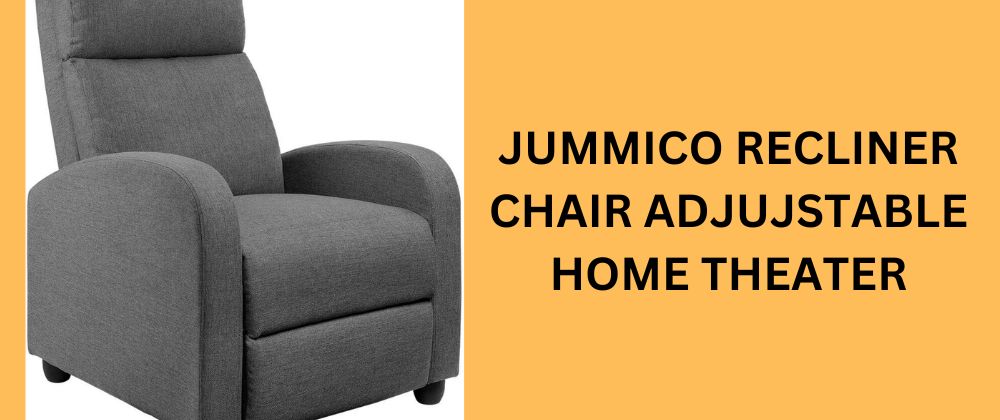
Can new furniture make you itch?
If you are allergic to the materials in your recliner, you may want to try using an anti-allergy spray before you sit down. This will help to reduce the amount of irritants that come into contact with your skin. You can also use a dust mite cover on your recliner to prevent the mites from triggering a flare-up.
How do you stop couch dermatitis?
If you are experiencing itchiness from your recliner or other furniture, there are a few things you can do to ease the irritation. If you have eczema or psoriasis, you may want to try using a moisturizer after you sit in your recliner. This will help to protect your skin and keep it from drying out.
You can also use a dust mite cover on your recliner to prevent the mites from triggering a flare-up. If you are allergic to the materials in your recliner, you may want to try using an anti-allergy spray before you sit down. This will help to reduce the amount of irritants that come into contact with your skin.
How can I prevent my furniture from making me itch?
If you are allergic to the materials in your recliner, you may want to try using an anti-allergy spray before you sit down. This will help to reduce the amount of irritants that come into contact with your skin.
You can also use a dust mite cover on your recliner to prevent the mites from triggering a flare-up. If you have eczema or psoriasis, you may want to try using a moisturizer after you sit in your recliner. This will help to protect your skin and keep it from drying out.
Which fabrics can cause itching?
Some fabrics, like wool, can cause itching because they are scratchy. Others, like polyester, can cause itching because they are made from synthetic materials that can irritate the skin. If you are allergic to a specific fabric, it will likely cause you to itch when you come into contact with it.
Why Do Massage Chairs Make You Itch
Massage chairs can sometimes cause itching due to increased blood circulation, skin stimulation, or an allergic reaction to materials used. The rubbing motion on the skin can also cause dryness, leading to itchiness. Ensuring proper hygiene and using a towel or wearing clothing during massage chair sessions may help alleviate this discomfort. Learn more about Massage Chairs here.
Why Is My Recliner Making Me Itch? My Conclusion
I hope this article has helped you understand why your recliner may be making you itch, and what options you have to remedy the situation. Although a new recliner may seem expensive, the potential health benefits could pay off in the long run. Plus, when done properly, you can make sure any old upholstery debris is properly discarded and not left lingering in the air.
If it turns out that your itching is due to another cause altogether, there are many things you can do to improve your overall comfort as well as the quality of your space. From cooling mattresses to allergen proof fabrics, there’s something out there for everyone. Whatever course of action you choose, please be sure to stay safe while addressing this issue promptly. If you have any comments, please leave them below. Thank you for reading!

